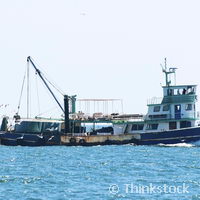Sharing data to achieve sustainable global marine management
A healthy sustainable marine environment is crucial to the smooth functioning of the EU economy. Fishing and offshore oil and gas fields for example employ thousands and bring in billions of euro a year, while most raw materials and consumer goods are imported and exported by sea. In fact, the EU has the world's largest merchant fleet; 90 % of foreign trade and 40 % of internal trade is seaborne. Coastal areas are also vital for tourism. The sustainable management of this marine environment is therefore a critical economic as well as environmental issue, and to be truly effective, international cooperation is required. For this reason, the EU-funded IMARINE project, which was completed in April 2014, has developed data infrastructure specifically designed to encourage cross-border and cross-sectoral collaboration in this field. Specialists from 17 countries gathered in Rome in March 2014 to mark the imminent completion of the project, and to examine new funding opportunities under the EU's Horizon 2020 programme. Addressing global societal challenges is one of the three pillars of Horizon 2020, which is something that IMARINE has successfully addressed. The IMARINE infrastructure works by providing an open access platform to relevant marine information and resources. This can be accessed quickly and effectively by numerous marine stakeholders such scientists, the fishing industry and environmental groups. Indeed, a key challenge that emerged from early IMARINE workshops was the need for greater global efforts - especially in fishing - to share information at the international level. Seamless access to data should lead to quicker, more informed decision making. By interconnecting all these concerned sectors, the ultimate goal of IMARINE is to encourage what is known as an ecosystem approach to the marine environment. This approach aims to ensure that, despite variability, uncertainty and likely natural changes within the ecosystem, the capacity to produce food, revenue and employment is maintained for the benefit of both present and future generations. This will only be achieved through global collaboration among different parties, and the IMARINE data infrastructure is designed to facilitate this. The IMARINE Board - made up of policy makers, industry experts and scientists - has also contributed to the promotion of an ecosystem approach through sharing examples of best practice, helping to define global standards and offering advice on sustainable policies. Board Members have also been instrumental in establishing several new collaborations, by building on the possibilities presented by IMARINE's operational data infrastructure. The gateway is a key feature of this infrastructure. This provides users with online access to a number of Virtual Research Environments, which bring together experts, multidisciplinary data sources and analysis on a particular issue. Within these research environments, users can find everything they need to complete a particular task. IMARINE promises to have a lasting impact on the way we address sustainable marine management in the future. This will have direct and indirect benefits on the future of our planet, from climate change mitigation and marine biodiversity loss to disaster risk reduction.For more information, please visit: IMARINE http://www.i-marine.eu/(opens in new window) Project Factsheet
Countries
France



